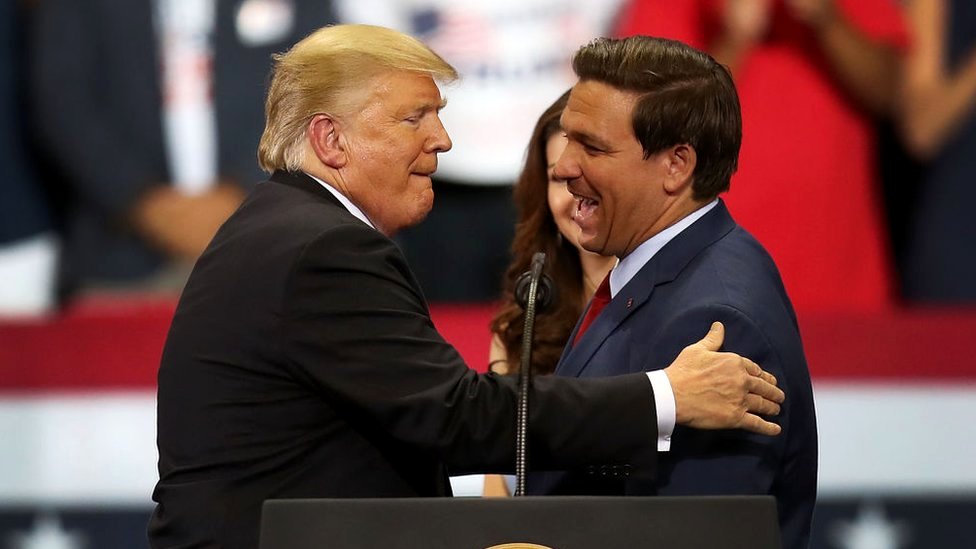As the 2024 election season unfolds, the Republican Party is witnessing an intense and dynamic race for its presidential nomination. The Iowa caucuses, a crucial early test in the election cycle, have set the stage for a gripping political drama among the leading GOP candidates – former President Donald Trump, Florida Governor Ron DeSantis, and former U.N. Ambassador Nikki Haley.
Trump, known for his commanding presence in the Republican arena, secured a significant victory in Iowa, winning 98 out of 99 counties. This impressive feat underscores his enduring appeal among the GOP base and sets a high bar for his competitors. However, the Iowa results also brought to light the formidable challenge posed by Haley, who managed to edge out Trump in one county by a single vote, preventing a complete sweep by the former President.
Meanwhile, DeSantis, a prominent figure in the party and often touted as a key contender, faced a challenging scenario. Despite a rigorous campaign effort that included visiting all 99 counties in Iowa and securing notable endorsements, DeSantis finished second. His performance, while strong, fell short of Trump’s sweeping victory, sparking a flurry of reactions and analysis within political circles.
In a post-caucus interview with Fox News anchor Neil Cavuto, DeSantis passionately defended his campaign’s strategy and outcomes. He emphasized his resilience in the face of significant political and financial opposition, highlighting the heavy advertisement spending against him and the challenging political headwinds he encountered. DeSantis’ defense points to a larger narrative of perseverance and strategic campaigning in a highly competitive field.
The tension between Trump and DeSantis escalated following the Iowa results. Trump, known for his direct and often provocative communication style, took to his Truth Social platform to critique DeSantis’ performance. Labeling DeSantis as “Ron DeSanctimonious,” Trump highlighted the latter’s failure to win any county in Iowa, a pointed remark indicative of the growing rivalry between the two prominent Republicans.
As the GOP candidates gear up for the next significant electoral event, the New Hampshire primaries, the stakes continue to rise. Current polls suggest a diverse field with Trump leading, followed by Haley and DeSantis. These numbers, however, are subject to the dynamic nature of political campaigns, where debates, public appearances, and policy positions can rapidly shift voter sentiment.
The Republican race is not just a contest for the party’s nomination but a reflection of the broader ideological and strategic directions within the GOP. Each candidate brings a unique style, policy agenda, and vision for the future of the party and the country. As they move forward, their ability to connect with voters, address key issues, and present a compelling case for their candidacy will be crucial in determining the eventual nominee.
In conclusion, the Iowa caucuses have set in motion a captivating and critical phase in the Republican presidential race. The interplay between Trump’s established base, DeSantis’ strategic campaigning, and Haley’s emerging presence paints a complex picture of the GOP’s path to the 2024 election. As the candidates prepare for New Hampshire and beyond, the eyes of the nation remain fixed on this unfolding political drama, one that will shape the future of the Republican Party and the United States.

